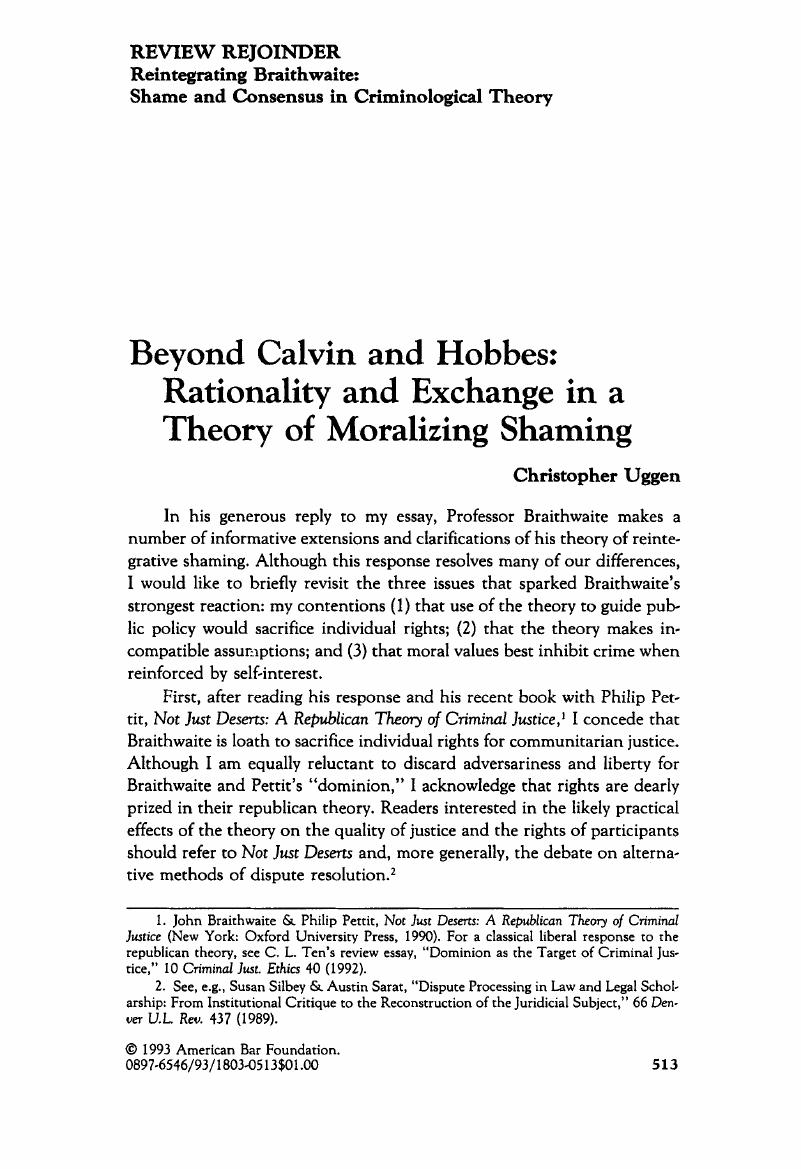No CrossRef data available.
Published online by Cambridge University Press: 27 December 2018

1 John Braithwaite & Philip Pettit, Not Just Deserts: A Republican Theory of Criminal Justice (New York: Oxford University Press, 1990). For a classical liberal response to the republican theory, see C. L. Ten's review essay, “Dominion as the Target of Criminal Justice,” 10 Criminal Just. Ethics 40 (1992).CrossRefGoogle Scholar
2 See, e.g., Silbey, Susan &. Sarat, Austin, “Dispute Processing in Law and Legal Scholarship: From Institutional Critique to the Reconstruction of the Juridicial Subject,” 66 Denver U.L. Rev. 437 (1989).Google Scholar
3 Thomas Hobbes, Leviathan, ed. Michael Oakeshott ([1651] New York: Collier Books, 1962).Google Scholar
4 Desmond Ellis, “The Hobbesian Problem of Order: A Critical Appraisal of the Normative Solution,” 36 Am. Soc. Reu. 692 (1971). The quotation is from Hobbes's Leviathan at 113. For examples of the normative and exchange approaches, see Talcott Parsons, The Structure of Social Action (Glencoe, Ill.: Free Press, 1937), and Herbert Spencer, Principfes of Sociology (New York: Appleton, 1884).Google Scholar
5 Ellis, , 36 Am. Soc. Rev. at 694–95.Google Scholar
6 Ruth R. Kornhauser, Social Sources of Delinquency: An Appraisal of Analytic Models 46 (Chicago: University of Chicago Press, 1978) (“Kornhauser, Social Sources”).Google Scholar
7 Ellis, . 36 Am. Soc. Rev. at 693–94.Google Scholar
8 Talcott Parsons, The Social System (Glencoe, Ill.: Free Press, 1951) cited in Ellis, 36 Am. Soc. Rev. at 696.Google Scholar
9 Kornhauser, , Social Sources 46.Google Scholar
10 Elliott Currie, Confronting Crime: An American Challenge 263 (New York: Pantheon, 1985).Google Scholar